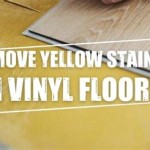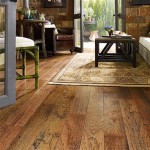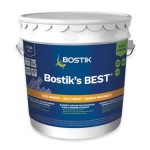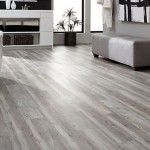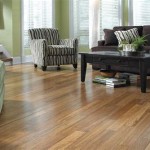Aluminum Stock Trailer Flooring Ideas: A DIY Guide
Aluminum stock trailers offer durability and longevity, making them a preferred choice for transporting livestock, equipment, and other cargo. However, the flooring in these trailers often experiences heavy wear and tear. Choosing the appropriate flooring material and implementing a well-executed installation process can significantly extend the life of the trailer and ensure the safety and comfort of the transported animals or goods. This article explores various DIY aluminum stock trailer flooring ideas, focusing on materials, installation techniques, and key considerations.
Before embarking on any flooring project, a thorough inspection of the existing trailer floor is essential. Assess the degree of damage, including any corrosion, cracks, or weak spots in the aluminum frame. Address any structural issues before proceeding with the new flooring. This might involve welding repairs, reinforcing weak areas, or replacing severely damaged sections. Proper preparation is crucial for a durable and long-lasting floor.
Safety is paramount when working on any DIY project involving metal. Wear appropriate personal protective equipment (PPE), including safety glasses, gloves, and hearing protection. If welding is required, ensure proper ventilation and use a welding helmet. Finally, disconnect any electrical components from the trailer before commencing work to prevent electrical hazards.
Understanding Flooring Material Options for Aluminum Trailers
Selecting the right flooring material is paramount for a successful DIY project. Several options exist, each offering different advantages and disadvantages regarding durability, cost, weight, and ease of installation. The following are commonly considered materials:
Wood Planks: Traditionally, wood planks such as treated lumber or oak have been used for trailer floors. Wood offers a relatively inexpensive and readily available option. However, wood is susceptible to rot, moisture damage, and insect infestation, requiring regular maintenance and eventual replacement. Consider using pressure-treated lumber to mitigate these issues, but be aware that treated lumber adds significant weight to the trailer.
Rubber Mats: Rubber mats provide a cushioned surface that enhances animal comfort and reduces noise during transport. They are generally durable and easy to clean. However, rubber mats can be heavy and may trap moisture underneath if not properly installed, leading to corrosion of the aluminum floor. Consider using interlocking rubber mats that allow for drainage and easy removal for cleaning. Ensure the mats are securely fastened to prevent shifting during transit.
Aluminum Tread Plate: Aluminum tread plate (or diamond plate) offers excellent durability and corrosion resistance. It provides a non-slip surface, enhancing safety for both animals and handlers. Aluminum tread plate is relatively lightweight compared to wood or rubber. However, it can be more expensive than other options. Installation typically requires welding or bolting the plate to the trailer frame, demanding a higher level of skill and equipment.
Composite Decking: Composite decking, made from a blend of wood fibers and recycled plastic, offers a durable, low-maintenance alternative to traditional wood. It is resistant to rot, moisture, and insect infestation. Composite decking is generally more expensive than wood but requires significantly less upkeep. Installation typically involves screwing or bolting the decking boards to the trailer frame.
Spray-On Bedliner: Applying a spray-on bedliner, such as polyurethane or polyurea, can create a durable, waterproof, and non-slip surface. These coatings bond directly to the aluminum floor, providing excellent protection against corrosion and abrasion. Professional application is generally recommended for optimal results, but DIY kits are available. Proper surface preparation, including cleaning and etching the aluminum, is crucial for achieving a strong bond.
When selecting flooring, consider the specific needs of the cargo being transported. Livestock requires flooring that provides good traction and cushioning, while equipment may require a more durable and abrasion-resistant surface. The weight of the material is also a crucial factor, as excessive weight can reduce fuel efficiency and increase wear and tear on the trailer's suspension system.
DIY Installation Techniques for Aluminum Trailer Flooring
The installation process varies depending on the chosen flooring material. The following outlines general steps and considerations for each option:
Wood Plank Installation: * Measure and cut the wood planks to fit the trailer floor. * Apply a wood preservative or sealant to protect against moisture damage. * Attach the planks to the trailer frame using screws or bolts. Ensure the fasteners are compatible with aluminum to prevent corrosion. * Leave small gaps between the planks to allow for expansion and contraction. * Consider adding a layer of sealant along the edges of the planks to prevent water penetration.
Rubber Mat Installation: * Measure and cut the rubber mats to fit the trailer floor. * Clean the trailer floor thoroughly to remove any dirt or debris. * Apply an adhesive to the trailer floor and the underside of the mats to secure them in place. * Alternatively, use interlocking rubber mats that require no adhesive. * Ensure the mats are properly aligned and secured to prevent shifting. * Consider adding drainage holes to the mats to prevent moisture buildup.
Aluminum Tread Plate Installation: * Measure and cut the aluminum tread plate to fit the trailer floor. * Clean the trailer frame thoroughly to remove any dirt or corrosion. * Weld or bolt the tread plate to the trailer frame. Welding requires specialized equipment and skills. Bolting is a simpler option, but ensure the bolts are properly secured and sealed to prevent water leakage. * Consider using a sealant along the edges of the tread plate to prevent water penetration. * Deburr any sharp edges to prevent injury.
Composite Decking Installation: * Measure and cut the composite decking boards to fit the trailer floor. * Attach the decking boards to the trailer frame using screws or bolts specifically designed for composite materials. * Follow the manufacturer's recommendations for spacing and fastening. * Ensure the fasteners are compatible with aluminum to prevent corrosion. * Consider adding a layer of sealant along the edges of the decking boards to prevent water penetration.
Spray-On Bedliner Application: * Thoroughly clean and prepare the aluminum floor by removing any dirt, rust, or old coatings. * Etch the aluminum surface with a chemical etching solution to promote adhesion. * Apply a primer specifically designed for aluminum. * Apply the spray-on bedliner according to the manufacturer's instructions, typically in multiple thin coats. * Allow the bedliner to fully cure before using the trailer.
Regardless of the chosen material, proper fastening is crucial for a safe and durable floor. Use fasteners compatible with aluminum to prevent galvanic corrosion, which can weaken the connection over time. If welding, employ an experienced welder skilled in aluminum welding. Thoroughly clean and prepare the aluminum surface before welding to ensure a strong and reliable bond.
Key Considerations for Longevity and Maintenance
Proper maintenance is essential for extending the life of any trailer flooring. Regular cleaning can prevent the buildup of dirt, debris, and corrosive substances. Hose down the floor after each use, and periodically scrub it with a mild detergent and water. Inspect the flooring regularly for any signs of damage, such as cracks, rot, or corrosion. Address any issues promptly to prevent further deterioration.
For wood flooring, apply a wood preservative or sealant annually to protect against moisture damage and insect infestation. Repair any cracks or splits in the wood promptly. For rubber mats, remove them periodically to clean the underlying aluminum floor and prevent moisture buildup. Inspect the mats for wear and tear, and replace them as needed. For aluminum tread plate, inspect the welds or bolts for signs of corrosion or loosening. Repair any damage promptly to prevent further deterioration. For composite decking, clean the surface regularly with a mild detergent and water. Inspect the boards for any signs of damage, and replace them as needed. For spray-on bedliner, inspect the coating for any signs of peeling or cracking. Repair any damage promptly to prevent water penetration and corrosion.
Consider adding a protective coating to the aluminum frame to further enhance its corrosion resistance. Regularly inspect the trailer's suspension system and tires to ensure they are in good working condition. Proper maintenance not only extends the life of the flooring but also ensures the safety and reliability of the entire trailer.
Choosing the right flooring material and implementing a meticulous installation process are critical for maximizing the lifespan and functionality of an aluminum stock trailer. By carefully considering the available options and following the outlined guidelines, owners can undertake a successful DIY flooring project that provides years of reliable service.
Prioritizing safety throughout the project and performing regular maintenance will contribute to the durability and longevity of the new flooring, guaranteeing a secure and comfortable transport experience.
Aluminum Floor Livestock Trailer With Ridges How To Put Mats In The Horse Forum

Horse And Livestock Trailer Purchasing 101 Part 4 Red Gate Farm

Horse And Livestock Trailer Purchasing 101 Part 4 Red Gate Farm

Horse And Livestock Trailer Purchasing 101 Part 4 Red Gate Farm

A Closer Look At The Structural Supports On An Aluminum Trailer Floor

Trailer Floor Cattletoday Com Cattle Cow Ranching Community

Extruded Aluminum Flooring For Truck Trailer Fonnov

Horse Trailer Floor Failure Is Your Strong Enough

Is Your Horse Trailer Floor Strong Durable Enough

5 Types Of Horse Trailer Flooring How To Choose One Farm House Tack
Related Posts


